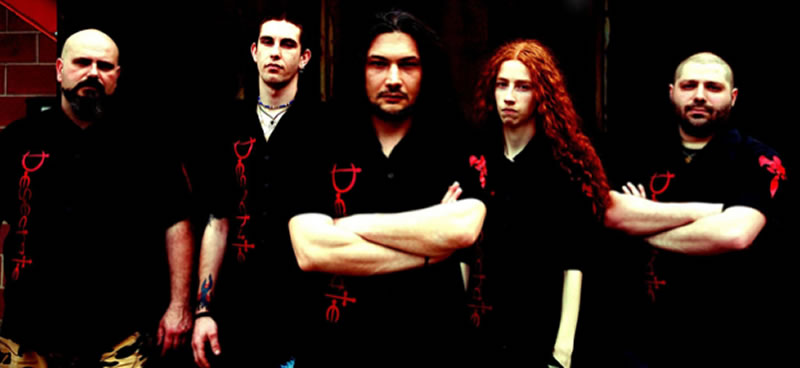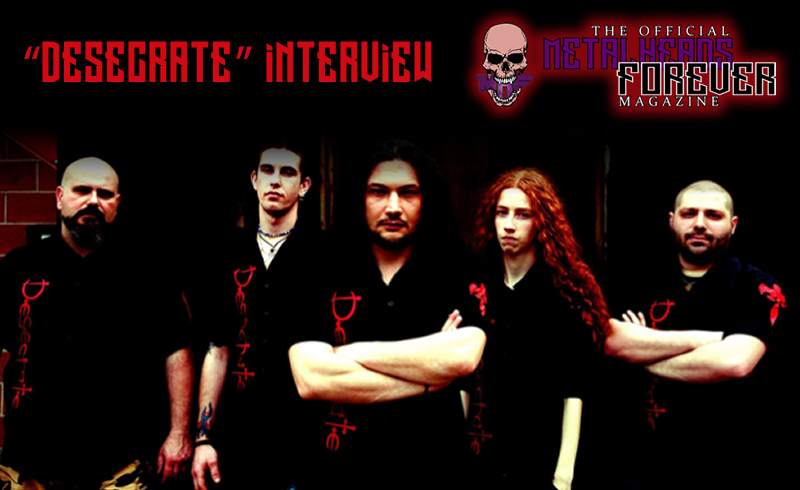Classical allusions on the album Orpheus are plentiful. Considering the album name itself refers to a classical figure heavily associated with arts and music, with songs like “To the Hades and Back” and “The Grecian Urn”, perhaps also a reference to John Keats’ poem, it is hard to miss the classical influences. Was this an intentional motif or are the references coincidental?
(Gabry)- It was indeed an intentional motif to let the elder artists speak for ourselves. Paraphrasing what J.W. von Goethe said, only when we think hard about what has already been thought, we will understand the correct way of what has already been thought (“I’m workin’ on it”). The art reveals itself spontaneously as the truth (Hegel, Heidegger, Schopenhauer for example) and uses all beings as a mean to exist; the greatness of the artist resides only in his ability to truly, deeply and genuinely listen and observe nature (and I mean the whole world, the entire universe) and it’s actually really fascinating how all the classical traditions of the art and architecture of ancient Greece and Rome, especially the aspects of simplicity, elegance and proportion, bring to us a primitive and mythological reading of existence and thus so far honest and unadulterated. “The Grecian Urn” has strong references to John Keats’ poem, but classical allusions and Classicism are only an easier way to express the main concept of this album: immortality of art and through art; think about the figure of Orpheus: we are still talking about him after more than two thousand years.
It’s interesting how different art forms seep into one another. Something that may have started out a short lyric may be expanded into a longer story and conversely, a longer story may provide a base for a song. Are there any other artists who are not musicians that stimulate you creatively?
(Gabry)- synesthesia… “production of a sense impression relating to one sense by stimulation of another sense” and according to me that’s the starting point of every creative moment. There’s plenty of artists (who are not musicians) that stimulate me/us creatively (that’s quite a personal question and I hope not to give you a subjective response, but I think to speak also for other components of the band); in relation to what I said before, the Nature itself is an artist, a naïf artist. Everything and everyone could be a creative stimulation, ’cause Art wants to exist and tries endlessly to unveil itself. In any case, answering to your question, I personally find inspiration in philosophy, poetry and visual arts (but also martial arts are stimulating creatively, for example… any kind of art, expression). If you prefer an approximate list (FYI as I think lists are too impersonal), for lyrics I’ve found inspiration from Aristotle, Plato, Socrates, Caravaggio, Leonardo Da Vinci, Goethe, Nietzsche, Sartre, Heidegger, Schopenhauer, Kierkegaard, Montale, Ungaretti, Foscolo, Quasimodo, Pirandello, Michelangelo, Hegel, Verga, E.A.Poe, O.Wilde, A.Kurosawa, O.Wells, H.Miyazaki, Kafka and many many others, but it’s only a list of names!

Many death metal bands that have a pianist generally use them for accent pieces or during slower paced moments in the album. Desecrate integrates the piano throughout the entirety of your songs. This addition is an interesting shading to your tracks and a layer of dynamics that is often absent in extreme styles of metal. Do you feel as though the piano elements help to create your distinctive sound more so than the other instruments?
(Gabry)- Consider that was a new experience for us too… it was a project born to the need of change and to the desire to experience new paths; I think piano elements helped to create our new distinctive sound but not more than the other instruments. As you said, it’s an interesting shading and a layer of dynamics, but if you try to exclude any other instrument (voice, guitar, bass or drums), you won’t find the same sound… and I don’t mean you won’t find that particular instrument you decided to exclude, ’cause you won’t find the same sound and the same dynamics at all; if you try to mute one instrument, the entire dynamic structure falls down… we spent a lot of time mixing and mastering the concept album “Orpheus” in order to create this our new sound, balancing all frequencies in order to give space to every our instruments. I don’t know if we have succeeded in this intent and if we have found “our way”, but we are always working on our dynamics.
The song “Nevermore” off Orpheus was selected to be featured in the upcoming gothic slasher film Stridor due out by February 2017. Can you tell us anything about the scene pertaining to Desecrate? Do you think you’ll take this as an opportunity to expand “Nevermore” into a full music video?
(Gabry)- I’m only allowed to say to you that we will play the part of… Desecrate! We will impersonate ourselves, a death metal band recording a video clip. We are actually talking about the opportunity to expand this featuring into a full music video for “Nevermore”.
I read that there are possibilities of heading out on a tour toward the beginning of 2017. Would any of those dates bring you over to North America and do you see yourselves back in the studio anytime soon?
(Gabry)- Yes, there are strong possibilities for a new tour in 2017, but at the moment these dates don’t foresee live concerts in North America; I hope Alpha Omega let us peacefully “invade” your countries! And there’s always something boiling down there in studio, but we are very selective!
Jay Rollins / Metalheads Forever Magazine



